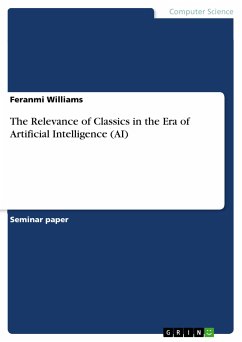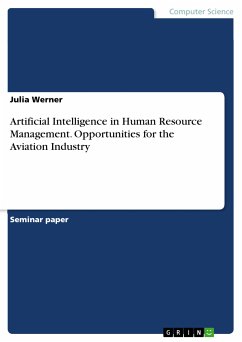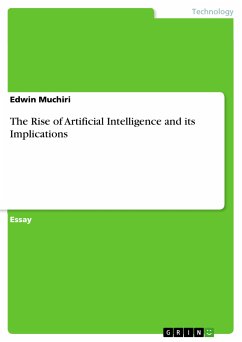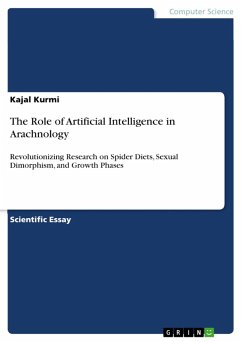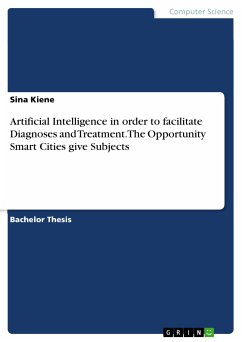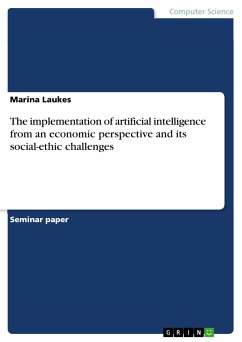
The implementation of artificial intelligence from an economic perspective and its social-ethic challenges (eBook, PDF)
Sofort per Download lieferbar
Statt: 15,95 €**
13,99 €
inkl. MwSt. und vom Verlag festgesetzt.
**Preis der gedruckten Ausgabe (Broschiertes Buch)
Weitere Ausgaben:

PAYBACK Punkte
0 °P sammeln!
Seminar paper from the year 2022 in the subject Computer Sciences - Artificial Intelligence, grade: 1,3, Ingolstadt University of Applied Sciences, language: English, abstract: This paper deals with the implementation of artificial intelligence from an economic perspective and considers its social-ethic challenges. Can machines think? With these pioneering words, and the questioning in the so-called imitation game whether it enables machines to think autonomously, Alan M. Turing developed one of the first fundamental ideas of machine learning and its significance for the future as early as the...
Seminar paper from the year 2022 in the subject Computer Sciences - Artificial Intelligence, grade: 1,3, Ingolstadt University of Applied Sciences, language: English, abstract: This paper deals with the implementation of artificial intelligence from an economic perspective and considers its social-ethic challenges. Can machines think? With these pioneering words, and the questioning in the so-called imitation game whether it enables machines to think autonomously, Alan M. Turing developed one of the first fundamental ideas of machine learning and its significance for the future as early as the 20th century. Machine learning (ML) or also known as Artificial Intelligence (AI) is now no longer a dystopia that was only initially considered, it has evolved and is a tangible reality and immeasurable in all aspects of life. Due to the fundamental paradigm shift, massively marked by the emergence of digitalization and Industry 4.0, artificial intelligence, which is being used almost across the board, will play a key role in the coming decades. The applicability of artificial intelligence and increasingly complex algorithms continues to shape our everyday lives, from smartphones and search engines to the financial and healthcare sectors. Beyond this, the use of machine learning has a major impact on the economy and its future, significant societal implications. AI is a highly topical issue because, despite promising technological progress, the use of AI is often controversial, especially with regard to whether the implementation of such technology is morally and ethnically acceptable and whether certain legal and normative boundaries are crossed. Therefore, the aim of this research paper is to analyze how far the implementation of artificial intelligence will continue to have a decisive impact on economic events and cause change. Irrespective of this, it is also important to analyze the social-ethnic effects of the use of AI.
Dieser Download kann aus rechtlichen Gründen nur mit Rechnungsadresse in A, B, BG, CY, CZ, D, DK, EW, E, FIN, F, GR, HR, H, IRL, I, LT, L, LR, M, NL, PL, P, R, S, SLO, SK ausgeliefert werden.









